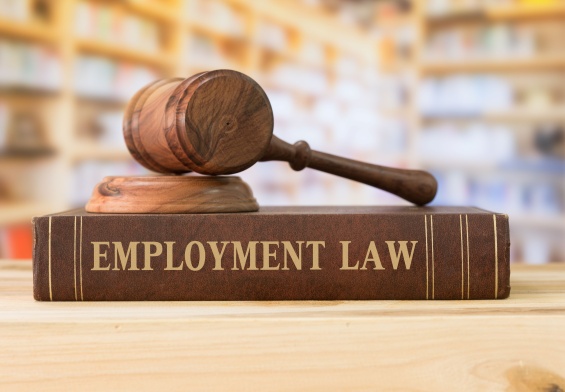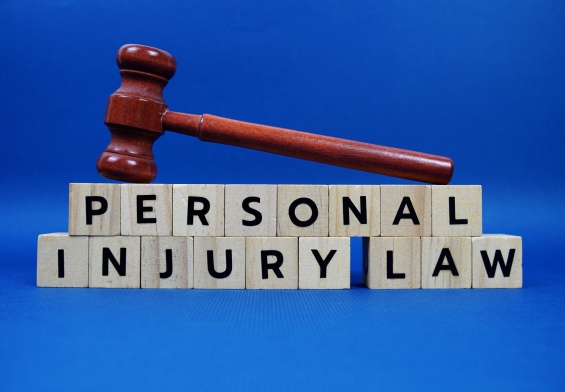Originally posted on: https://ciecka.com/understanding-workers-compensation-laws-in-new-jersey/
Navigating the complexities of New Jersey’s workers’ compensation laws can be a daunting task for both employers and employees alike. This system, designed to provide a safety net for those injured on the job or suffering from occupational illnesses, operates on a no-fault basis, ensuring that employees receive medical treatment, wage replacement, and compensation for permanent disabilities without the need for lengthy legal battles over fault. However, understanding the intricacies of how to file a claim, what benefits are available, and how to navigate potential disputes is crucial for ensuring that injured workers in NJ receive the support and benefits they are rightfully entitled to. This comprehensive guide aims to demystify the workers’ compensation process in New Jersey, covering everything from the initial steps following a workplace accident to the appeals process and the role of legal representation in securing fair compensation. With a focus on key aspects such as temporary and permanent disability, occupational illness, and the rights of misclassified employees, this article serves as an essential resource for anyone seeking to understand or engage with the New Jersey workers’ compensation system.
Table of Contents
ToggleIntroduction to New Jersey Workers’ Compensation
New Jersey’s workers’ compensation system is a pivotal part of the state’s efforts to protect its workforce. Established as a no-fault insurance program, it ensures that employees who suffer from work-related injuries or occupational diseases receive medical care, wage replacement, and compensation for any lasting disabilities. This framework is designed to provide swift and fair support to injured workers, bypassing the complexities and confrontations often associated with proving fault. The essence of this system is its guarantee of immediate assistance, focusing on the recovery and rehabilitation of the employee rather than the litigation of the injury’s circumstances. This approach not only benefits the injured worker but also provides a level of financial predictability and security for employers, who contribute to the workers’ compensation insurance fund.
Under the New Jersey workers’ compensation laws, the coverage is comprehensive, extending to almost all employees from the moment they commence employment. The law mandates that employers either purchase insurance or, in some cases, obtain approval to self-insure, thereby ensuring that funds are available to cover potential claims. This insurance covers all necessary medical treatments related to the work injury or illness, wage replacement benefits during periods of recovery, and compensation for permanent impairments. The system is designed to facilitate a cooperative process between the injured worker, the employer, and the insurance carrier, aiming to achieve a resolution that supports the worker’s return to employment.
However, navigating the workers’ compensation claims process in New Jersey can be complex. From the initial reporting of the injury to securing the appropriate benefits, each step involves specific procedures and deadlines. For instance, an injured worker must notify their employer about the injury within a prescribed timeframe, and the employer must then report this to their insurance carrier. Understanding these procedural requirements is crucial for both employees and employers to ensure that claims are processed efficiently and benefits are distributed promptly. Despite the system’s intent to minimize disputes, disagreements over the nature of the injury, the extent of medical treatment, and the compensation due can arise, making it essential for all parties to be well-informed about their rights and responsibilities under New Jersey’s workers’ compensation laws.
Filing for Workers’ Compensation in NJ
Filing for workers’ compensation in New Jersey is a critical step for employees who have suffered a work-related injury or illness. The process begins with the injured worker notifying their employer about the incident as soon as possible. This notification is not just a formality; it sets the wheels in motion for the workers’ compensation claim. New Jersey law requires that this notification be made promptly, although the exact timeframe can vary. Once notified, the employer is then responsible for informing their workers’ compensation insurance carrier about the incident. This initial exchange of information is crucial as it ensures that the claim is recognized and that the injured worker can start receiving benefits without undue delay.
The documentation involved in filing a claim is detailed and must be handled carefully. Employers typically provide the necessary forms, including the First Report of Injury form, which must be submitted to the New Jersey Division of Workers’ Compensation. This form captures essential details about the injury or illness, such as the date, time, and circumstances of the incident, as well as the nature of the injury and the treatment received. For the injured worker, it’s important to provide a thorough and accurate account of the incident to avoid any potential disputes or delays in the processing of the claim. Additionally, seeking medical treatment immediately and informing the healthcare provider that the injury is work-related are critical steps, as this medical documentation will form the basis of the claim.
Navigating the claims process can be complex, and understanding the rights and responsibilities it entails is essential for both employees and employers. For instance, in New Jersey, employers have the right to select the healthcare provider for the injured employee’s initial treatment, although there are provisions for emergency situations and for changing healthcare providers under certain conditions. Throughout this process, clear communication and timely action are key to ensuring that the injured worker receives the appropriate medical care and compensation benefits. The goal of the New Jersey workers’ compensation system is to support the injured worker’s recovery and return to work, and understanding how to file a claim effectively is the first step towards achieving this outcome.
Benefits Under NJ Workers’ Compensation
In New Jersey, the workers’ compensation system provides a range of benefits designed to support employees who have suffered work-related injuries or illnesses. These benefits are comprehensive, covering medical treatment, wage replacement, and compensation for permanent disabilities, ensuring that injured workers receive the necessary support to recover and, if possible, return to work. Medical benefits cover all necessary and reasonable treatment, hospitalization, and prescriptions related to the work injury or illness. This ensures that injured workers can focus on their recovery without worrying about the financial burden of their medical care. The system is designed to facilitate prompt and effective treatment to maximize the chances of a full recovery.
Wage replacement benefits are another critical component of the NJ workers’ compensation system, providing financial support to employees who are unable to work due to their injury or illness. These benefits, often referred to as temporary disability benefits, are calculated as a percentage of the worker’s average weekly wage, subject to minimum and maximum limits set by the state. This financial assistance continues until the worker is able to return to work or reaches maximum medical improvement (MMI), a term used to indicate that the worker’s condition is unlikely to improve further with medical treatment. For those who suffer permanent disabilities as a result of their work-related injury or illness, additional compensation is available. This can be in the form of permanent partial disability benefits, for those who have a lasting impairment but can still work in some capacity, or permanent total disability benefits, for those who are unable to return to any type of employment.
In the unfortunate event of a worker’s death due to a work-related injury or illness, the NJ workers’ compensation system provides death benefits to the dependents of the deceased worker. These benefits include a portion of the worker’s wages and coverage for funeral expenses, offering financial support to the family during a difficult time. The system’s comprehensive approach to benefits reflects New Jersey’s commitment to protecting workers and their families, ensuring they are supported in the aftermath of workplace accidents or exposures. Understanding the range of benefits available is crucial for injured workers and their families to ensure they receive all the support and compensation they are entitled to under the law.
Navigating Challenges: Appeals and Legal Representation
Navigating the challenges of the New Jersey workers’ compensation system, particularly when it comes to disputes over benefits or the handling of a claim, can be a complex process. When disagreements arise, whether regarding the extent of an injury, the appropriateness of provided medical treatment, or the compensation due, the state’s system offers a structured appeals process. This process allows for the resolution of disputes through both informal hearings and formal claims before the Division of Workers’ Compensation. Informal hearings can be a quicker way for parties to resolve disputes with the help of a judge, who offers non-binding recommendations. If the issue remains unresolved, filing a formal claim petition is the next step, initiating a legal process that could lead to a trial before a workers’ compensation judge. This formal avenue is designed to ensure that all parties have the opportunity to present evidence, including medical records and expert testimony, to support their positions.
The complexity of navigating appeals and the potential for legal proceedings underscore the importance of legal representation in workers’ compensation cases. An experienced NJ workers’ compensation lawyer can provide invaluable guidance and advocacy for injured workers facing the daunting task of challenging denied claims or insufficient benefits. Legal experts specializing in workers’ compensation understand the nuances of New Jersey law and can navigate the procedural intricacies of the system effectively. They can assist in gathering necessary evidence, preparing for hearings, and representing the injured worker’s interests throughout the appeals process. Moreover, a lawyer can advise on settlement negotiations, ensuring that any agreement fairly compensates the injured worker for their losses and medical expenses.
For many injured workers in NJ, securing legal representation can make a significant difference in the outcome of their claims. Lawyers not only help in overcoming the hurdles of the appeals process but also in understanding the full scope of benefits available under the law. They can assess the merits of a case, advise on the best course of action, and work tirelessly to protect the rights of injured workers. Whether it’s appealing a decision, negotiating with insurance companies, or pursuing additional compensation for permanent disabilities, a knowledgeable NJ workers’ compensation lawyer can be a crucial ally in ensuring that injured workers receive the justice and support they deserve.
Special Considerations in NJ Workers’ Compensation
In the realm of New Jersey workers’ compensation, several special considerations warrant attention, each adding layers of complexity to the system. One such consideration is the treatment of occupational illnesses, which are conditions developed over time due to work-related exposures rather than from a single incident. These cases, ranging from repetitive stress injuries to long-term exposure to hazardous materials, present unique challenges in proving the work-relatedness of the condition. New Jersey law acknowledges these complexities and includes provisions to support workers suffering from occupational illnesses, ensuring they receive the same access to medical treatment and compensation as those injured in more immediate workplace accidents.
Another critical aspect of New Jersey’s workers’ compensation system is its approach to misclassified employees. In today’s gig economy, the distinction between employees and independent contractors can become blurred, leading to potential misclassification. Misclassified workers may be wrongfully denied access to workers’ compensation benefits due to their employment status being inaccurately recorded. New Jersey has taken steps to address this issue, emphasizing the importance of correctly classifying workers to ensure that all eligible employees, regardless of their official title, have access to workers’ compensation benefits. This focus on proper classification underscores the state’s commitment to protecting workers and providing a safety net for those injured on the job.
The option for employers to self-insure for workers’ compensation liabilities introduces another layer of consideration. Self-insurance, where employers bear the financial risk of their workers’ compensation claims rather than purchasing insurance from a third party, is permitted in New Jersey under specific conditions and with approval from the state. This option requires employers to demonstrate financial stability and the ability to cover potential claims, offering an alternative to traditional insurance that can be beneficial for both large and financially robust companies. However, it also necessitates rigorous oversight to ensure that self-insured employers adequately compensate their injured workers, maintaining the protective intent of New Jersey’s workers’ compensation system. These special considerations, from occupational illnesses and misclassification to self-insurance, reflect the system’s adaptability and its overarching goal of supporting injured workers through comprehensive coverage and fair compensation.
How Ciecka Law Can Assist with New Jersey Workers’ Compensation Claims
The Law Offices of Vincent J. Ciecka, with our deep expertise in New Jersey workers’ compensation law, stands as a beacon of support for workers navigating the complexities of filing a claim and securing their rightful benefits. Our firm’s seasoned attorneys specialize in representing injured workers, offering a comprehensive suite of services designed to guide clients through every step of the workers’ compensation process. From the initial filing of a claim to appealing denied benefits, our team brings a wealth of knowledge and a personalized approach to each case. Our understanding of the intricacies of New Jersey’s workers’ compensation laws ensures that clients receive skilled advocacy and strategic advice, aimed at securing the maximum benefits and compensation available under the law.
Ciecka Law’s commitment to our clients extends beyond legal representation; they provide a holistic approach to legal support, recognizing the physical, emotional, and financial toll that a work-related injury or illness can impose on an individual and their family. Our firm’s personal injury attorneys are adept at navigating the medical and legal aspects of workers’ compensation claims, including securing appropriate medical treatment, negotiating with insurance companies, and representing clients in hearings and appeals. For workers facing challenges such as occupational illnesses, misclassification issues, or disputes over the extent of their injuries, Ciecka Law offers targeted expertise to address these complex scenarios. Our goal is not only to win cases, but to ensure that injured workers are treated fairly, receive the medical care they need, and are compensated for their losses and suffering.
Ensuring Fairness and Support in New Jersey’s Workers’ Compensation System
In conclusion, New Jersey’s workers’ compensation system serves as a critical safety net, offering comprehensive support to employees suffering from work-related injuries or illnesses. By providing medical care, wage replacement, and compensation for permanent disabilities without the need for proving fault, the system underscores a commitment to worker protection and recovery. Navigating the claims process, from initial reporting to potential appeals, emphasizes the importance of understanding one’s rights and responsibilities. Moreover, the system’s adaptability to address occupational illnesses, misclassification, and employer self-insurance options reflects its responsiveness to the evolving workplace landscape. As New Jersey continues to refine this system, the collective efforts of workers, employers, and legal professionals will be paramount in ensuring that it remains effective, fair, and attuned to the needs of its workforce, thereby upholding the principles of support and rehabilitation that are foundational to workers’ compensation.




